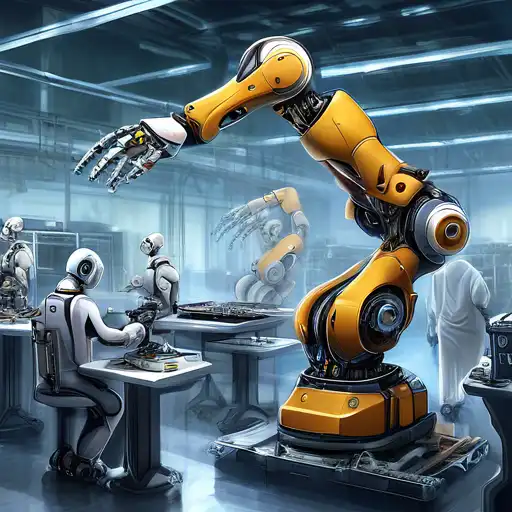The Revolutionary Impact of Robotics on Modern Manufacturing
In the heart of the industrial revolution, the introduction of robotics into manufacturing processes has marked a pivotal shift towards efficiency, precision, and scalability. This transformation is not just about replacing human labor but enhancing capabilities, reducing errors, and opening new avenues for innovation.
Understanding the Role of Robotics in Manufacturing
Robotics in manufacturing refers to the use of automated machines that can perform tasks with high precision and speed. These robots are programmed to carry out complex operations, from assembly to packaging, with minimal human intervention. The integration of robotics has led to significant improvements in production lines, making them more flexible and adaptable to changing demands.
Key Benefits of Robotics in Manufacturing
- Increased Productivity: Robots can operate 24/7 without fatigue, drastically increasing output.
- Enhanced Precision: With robotics, the margin for error is significantly reduced, ensuring high-quality products.
- Cost Reduction: Over time, the use of robots can lead to substantial savings in labor and operational costs.
- Safety Improvements: Robots can take over dangerous tasks, reducing workplace injuries.
Real-World Applications of Robotics in Manufacturing
From automotive to electronics, robotics is revolutionizing various sectors. In the automotive industry, robots are used for welding, painting, and assembly. In electronics, they play a crucial role in the precise placement of components on circuit boards. The food and beverage industry also benefits from robotics in packaging and palletizing.
Challenges and Considerations
Despite the numerous advantages, the adoption of robotics in manufacturing comes with its set of challenges. High initial investment costs, the need for skilled personnel to operate and maintain robots, and concerns over job displacement are significant considerations for businesses.
The Future of Robotics in Manufacturing
The future of manufacturing lies in the further integration of robotics with emerging technologies like artificial intelligence (AI) and the Internet of Things (IoT). This synergy will enable smarter, more autonomous systems capable of self-optimization and predictive maintenance, paving the way for the next industrial revolution.
As we look ahead, the role of robotics in manufacturing is set to grow exponentially, driven by advancements in technology and the increasing demand for efficiency and customization. The transformation brought about by robotics is not just changing how we manufacture but also redefining the possibilities within the industry.
For more insights into how technology is shaping industries, explore our articles on technology trends and the future of manufacturing.
